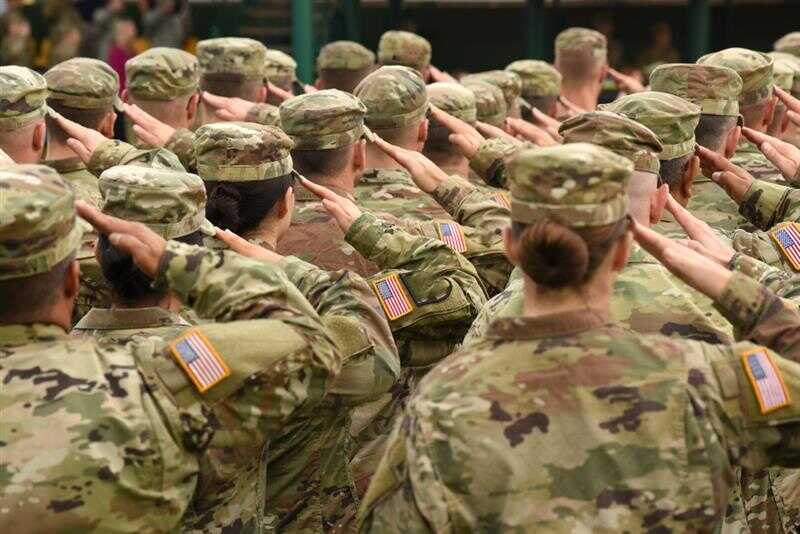(LibertySociety.com) – Fifteen thousand troops, three U.S. warships, and a president accusing the world’s most powerful nation of plotting invasion, this is not a movie script, but the latest high-stakes drama unfolding on the Colombia-Venezuela border.
Story Snapshot
- Venezuela deployed 15,000 troops to its border with Colombia amid accusations of impending U.S. invasion.
- Simultaneous U.S. naval movements in the Caribbean raised fears of direct conflict.
- President Maduro framed the operation as a defense against both narco-terrorism and foreign aggression.
- The standoff escalates a long history of border tensions, drug trafficking, and geopolitical rivalry.
Venezuela Raises the Stakes at the Border
On August 25, 2025, President Nicolás Maduro ordered an unprecedented deployment of 15,000 troops to the volatile frontier separating Venezuela and Colombia. The stated mission: dismantle narco-terrorist networks and defend Venezuelan sovereignty. The timing, however, was far from coincidental. As Maduro’s forces rolled into Zulia and Tachira states, three U.S. warships charted a course toward Venezuelan waters, intensifying fears of an imminent military showdown. This operation marks the largest Venezuelan border mobilization in years, a calculated move to project strength as U.S. pressure reached a fever pitch.
The border region, long a hotbed for smuggling, guerrilla activity, and drug trafficking, has rarely seen such a concentrated show of force. Maduro’s government claims to be rooting out criminal groups, but the choreography of troop and naval movements signals a message directed as much at Washington as at local cartels. State media blasted headlines about “defending the homeland,” while opposition figures dismissed the operation as political theater designed to rally nationalist sentiment and distract from Venezuela’s deepening economic crisis.
U.S. Naval Response and International Tension
Washington’s countermove, dispatching three Aegis-class destroyers and the reported deployment of up to 4,000 Marines to the Caribbean, transformed a regional dispute into a global headline. The Pentagon insisted its actions were part of a broader anti-narcotics campaign, citing longstanding allegations that Venezuelan officials, including Maduro himself, facilitate large-scale drug trafficking operations. In Caracas, however, the optics of American warships on the horizon played perfectly into Maduro’s narrative of imperialist threat and external meddling.
Defense Minister Vladimir Padrino López doubled down, announcing naval patrols and drone surveillance along the coastline and border. He declared Venezuela “free of coca leaf crops and free of cocaine production,” a claim U.S. officials promptly dismissed as propaganda. The result: a war of words, military maneuvers, and a diplomatic standoff that left border communities bracing for the worst. Local residents in Zulia and Tachira reported increased checkpoints, disrupted trade, and mounting anxiety about what might come next.
Power, Motives, and the Shadow of War
Maduro’s strategy is multifaceted. The border deployment demonstrates resolve and sows fear of invasion, rallying support from loyalists and reminding adversaries, internal and external, that the regime still commands muscle. For Diosdado Cabello, Interior Minister and longtime power broker, the operation is both a test of state control and a show of unity among Venezuela’s embattled leadership. On the U.S. side, the show of force sends a message to both Maduro and his allies: Washington will not tolerate a narco-state at its doorstep, and military options remain on the table.
Colombia, meanwhile, watches nervously. The Colombian government has long accused Venezuela of harboring rebel factions and criminal gangs. Now, with thousands of heavily armed Venezuelan troops massed at the border, Bogotá faces a new set of risks: border clashes, refugee surges, and the potential for diplomatic miscalculation to ignite a regional crisis. For the people living in the shadow of these deployments, farmers, traders, families, the militarization threatens livelihoods and heightens daily insecurity, with the ever-present fear that a single incident could spiral out of control.
Escalation, Uncertainty, and What Comes Next
Expert observers warn that military build-ups like this rarely resolve the underlying drivers of conflict. Security analysts caution that large-scale deployments can exacerbate local tensions and have a history of leading to human rights abuses. Academic voices argue that unless the deeper issues, poverty, lawlessness, and political repression, are addressed, the border will remain a flashpoint for violence and smuggling. Meanwhile, U.S. officials maintain that sustained pressure is the only way to force change in Caracas, even as critics worry that brinkmanship could tip into outright war.
The world now watches for the next move. Will diplomatic channels prevail, or will mutual suspicion and saber-rattling lead to disaster? The stakes, for Venezuela, the U.S., Colombia, and the wider region, could not be higher. For a country that has weathered years of crisis, the deployment is both a symptom and a symbol: a government on edge, a border on fire, and a continent holding its breath.
Copyright 2025, LibertySociety.com .
Click this link for the original source of this article.
Author: Editor
This content is courtesy of, and owned and copyrighted by, https://libertysociety.com and its author. This content is made available by use of the public RSS feed offered by the host site and is used for educational purposes only. If you are the author or represent the host site and would like this content removed now and in the future, please contact USSANews.com using the email address in the Contact page found in the website menu.





